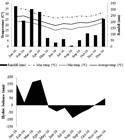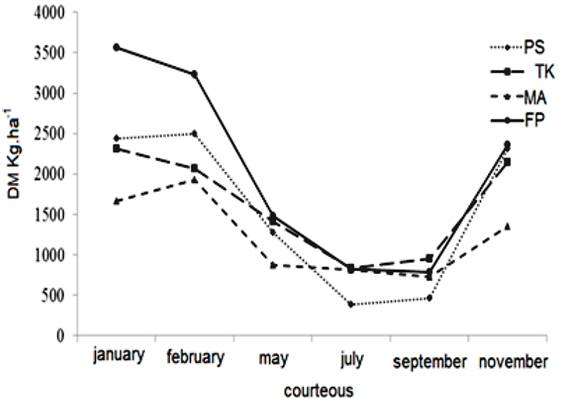ABSTRACT:
Find shade-tolerant species is essential to the success of silvopastoral systems, increasingly frequent in recent years. In legumes, which have potential of biological nitrogen fixation, there is a great lack of knowledge when in shaded environments.The cultivation of four tropical forage (Neonotonia wightii, Pueraria phaseoloides, Macrotyloma axilare and Arachis pintoi) was evaluated when submitted to artificial shade levels (30, 50 and 70% shade) and in full sun during water and drought seasons. The design used was in randomized complete blocks in a sub-divided plot scheme with four replications. In the Water-season the Forage Peanuts had higher forage production in full sun (11 ton ha-1 DM), and under shade did not differ from Perennial Soybean, higher than the others in all levels of shade. In Drought-season the forage production was 61% lower than in Water-season. The highest crude protein levels were reported in Forage Peanuts, Tropical Kudzu and Perennial Soybean, 19.0; 18.3 and 18.2% respectively in the Water-season. Forage Peanuts is a good option for use in silvopastoral systems although there is a small reduction in forage production (average of 23.7%). In general, species of fabaceae showed a greater reduction in forage production in the period of water deficit; however, shading at levels of 30% to 50% contribute to mitigation of water shortage. Although, there is a small reduction in forage production, withexception of perennial soybeans in dry season, it is advisable to use tropical forage legumes in silvopastoral systems, since forage quality is not affected by shade.
Key words:
Fabaceae; forage production; chemical composition

 Thumbnail
Thumbnail
 Thumbnail
Thumbnail

